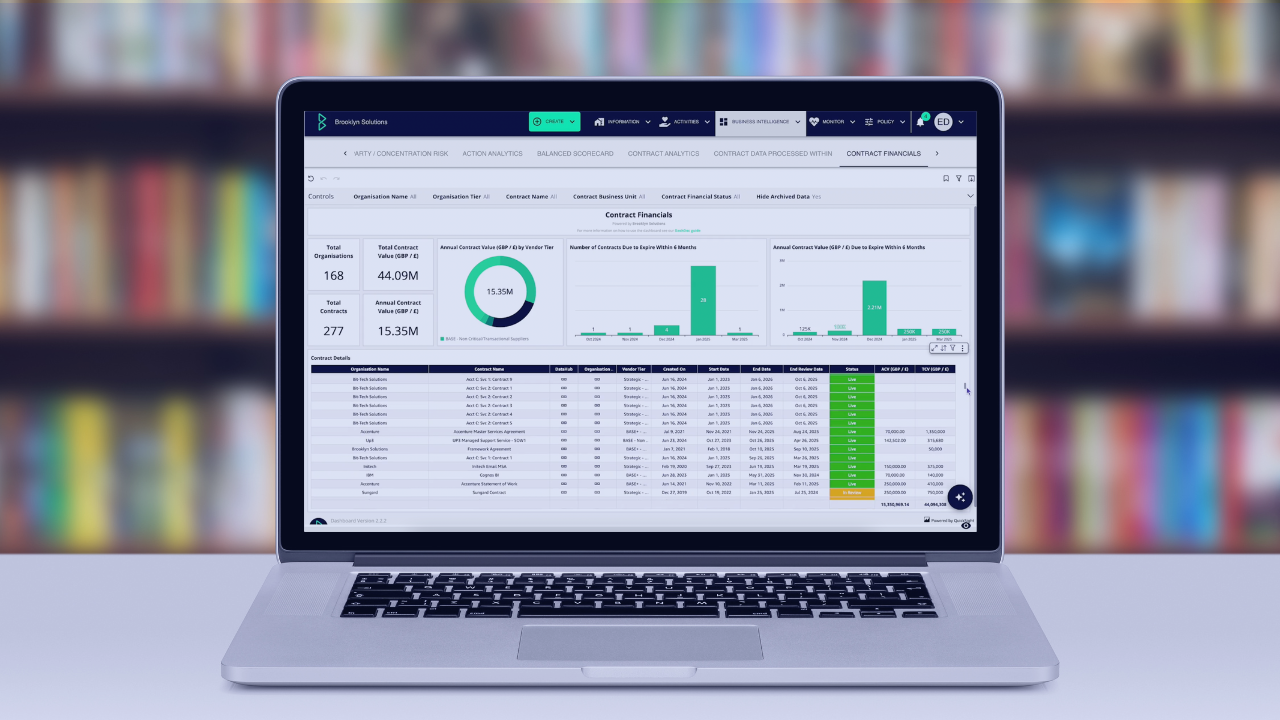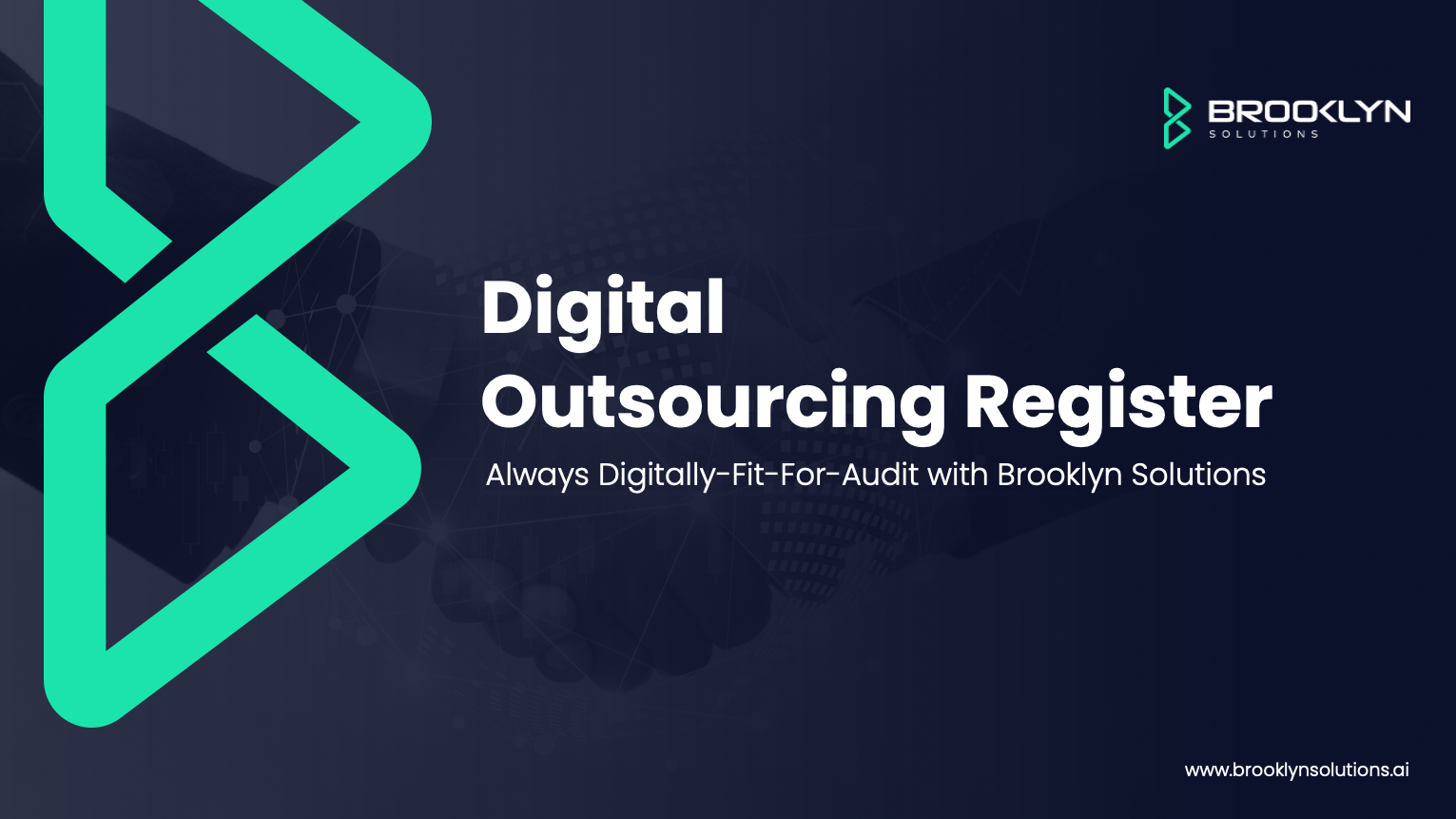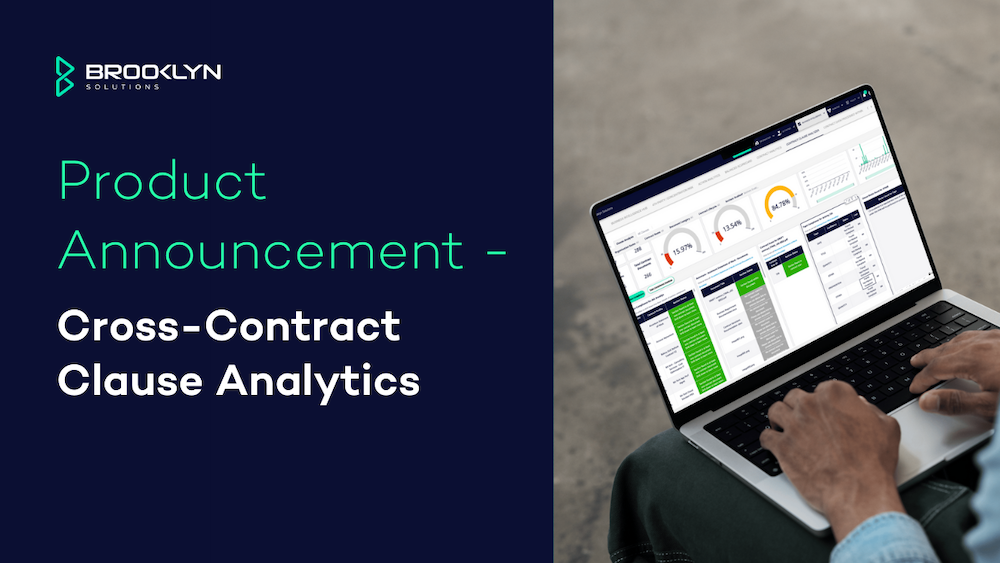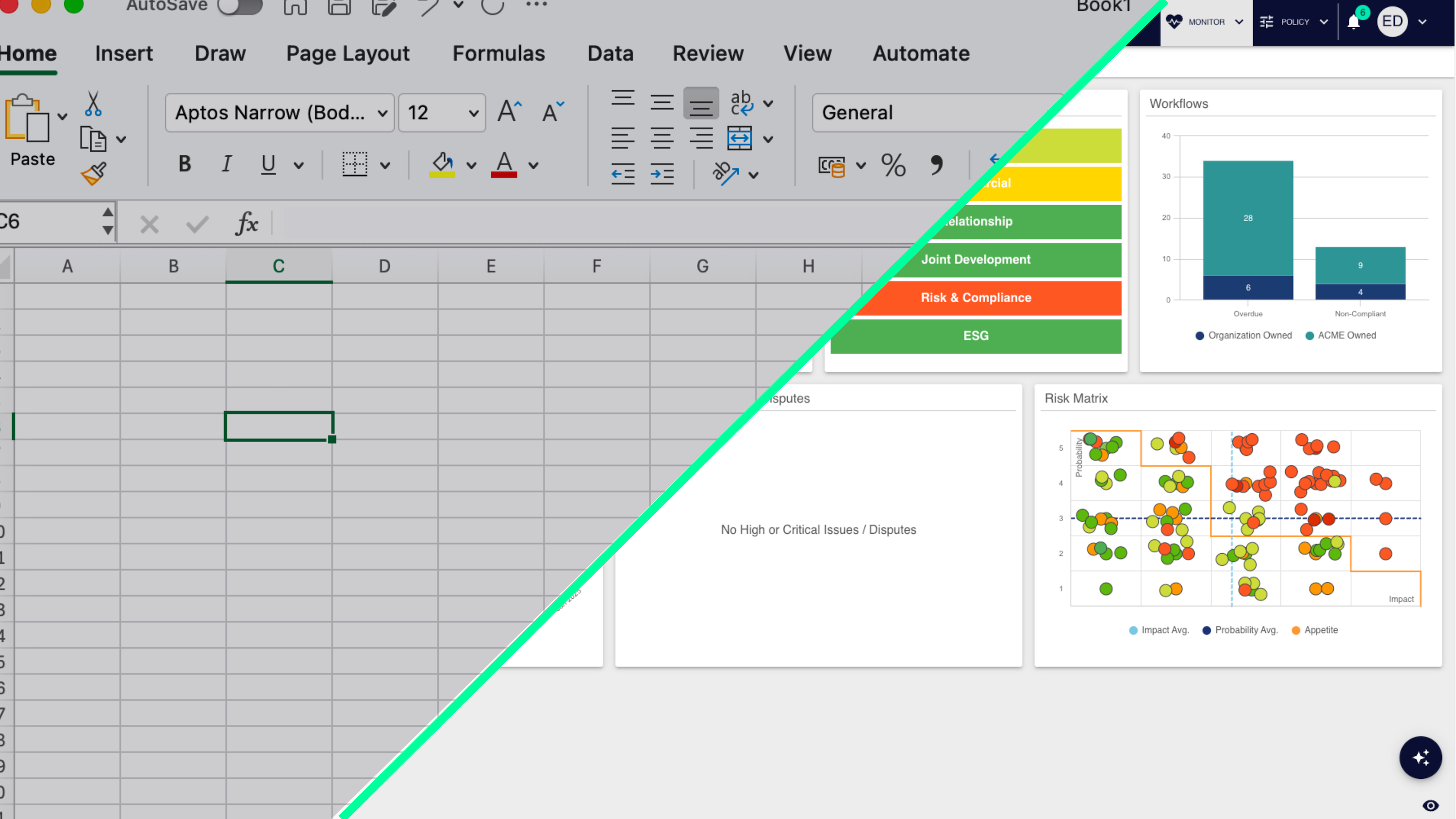According to a Deloitte study, 63% of companies identified regulatory compliance as a top business concern in 2023. (Deloitte, 2023). This comes as no surprise given the wave of regulatory changes reshaping vendor management globally over the past six years. In sectors such as finance, healthcare, and technology, stricter standards from regulations like the Prudential Regulation Authority (PRA), European Banking Authority (EBA), and the Digital Operational Resilience Act (DORA) have driven the need for comprehensive compliance tools, such as an outsourcing register, to meet audit demands efficiently.
For instance, DORA, which became law in January 2023, enforces stringent requirements for managing ICT risks, ensuring operational resilience for critical third-party providers. Similarly, the PRA has heightened scrutiny on third-party risk management, with upcoming Critical Third Party regulations that extend rigorous oversight to suppliers themselves. An outsourcing register can help organisations streamline compliance, maintain transparency, and stay audit-ready amidst these evolving standards.
The Challenge of Keeping Up
This rapid pace of regulatory evolution creates a burden for organisations. Especially for businesses heavily dependent on manual processes; using tools such as SharePoint and Excel to manage compliance. Manual processes can be resource-draining, particularly when preparing for regulator audits. With compliance teams relying on siloed data and labour-intensive methods, they face considerable challenges in responding quickly to shifting regulations.
Why Manual Processes Are No Longer Sufficient
- Time-Consuming Audits: Organisations using manual processes often find that preparing for audits becomes a major undertaking, requiring significant resources and time.
- Lack of Visibility: Manual methods create difficulty in maintaining real-time oversight of compliance risk levels. This leads to reactive rather than proactive management.
- Data Fragmentation: Siloed data can hinder effective collaboration and slow down efforts to identify and address non-compliant SLAs.
Data Analytics & Dashboards
Despite growing awareness of the importance of data analytics, a KPMG report reveals that 20% of companies still do not utilise it for compliance (KPMG, 2023). Of those that do, many focus solely on risk assessments. However, true regulatory compliance demands continuous monitoring, adaptability, and strategic oversight throughout the supply chain.
Data analytics and interactive dashboards can revolutionise your compliance approach by providing essential insights into supply chain performance while maintaining a comprehensive audit trail.
The Benefits of Compliance Dashboards
- Track Real-Time Risk Management: Gain full visibility into compliance risk levels across vendors and contracts, empowering your team to pinpoint high-risk areas for focused intervention.
- Manage Action Logs: Ensure identified risks and non-compliant SLAs are addressed with a clear trail of tracked actions, promoting transparency and accountability at every step.
- Stay Audit-Ready: Interactive dashboards make it easy to showcase your compliance efforts, documentation, and achievements during audits.
How a Digital Outsourcing Register Transforms Compliance
Brooklyn’s Outsourcing Register is designed to simplify and streamline regulatory compliance. By extracting critical data directly from your Contracts and Supplier Relationship Management system, you can effortlessly demonstrate compliance status. With customisable fields tailored to meet the requirements of any regulatory board, our digital repository helps you maintain a fit-for-audit log register, downloadable in formats required by the regulations.
Make complying with regulations simple. Book a demo of Brooklyn’s Outsourcing register and become digitaly-fit-for-audit in minutes.
About the Author

Nick Francis, Chief Technology and Marketing Officer at Brooklyn Solutions
Nick Francis is a well-established and experienced CxO delivering Digital & Security-focused Transformation through the design, build, and deployment of cost-effective, highly automated industry-leading solutions.With experience working across the private and public sectors in industries such as Financial Services, Insurance, Legal, Utilities, Retail, Public Sector and Government.
Specialised in compliance, risk & control activities in highly regulated industries, standardisation of technologies, streamlining of internal processes and continuous improvement driving consistency and efficiency across an organisation whilst holding Customer, Colleague and Partner experience at a premium.




